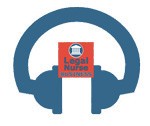Program Description
 If you have observed an IME on behalf of a patient (claimant or plaintiff) or considered adding this to the services you offer as an LNC, you need this program. Lorraine Buchanan, an experienced LNC whose business includes providing LNC’s to observe IME’s shares the behind the scenes details of this role.
If you have observed an IME on behalf of a patient (claimant or plaintiff) or considered adding this to the services you offer as an LNC, you need this program. Lorraine Buchanan, an experienced LNC whose business includes providing LNC’s to observe IME’s shares the behind the scenes details of this role.
You will learn how to:
- Describe the purpose of an RN accompanying a patient to an IME
- Distinguish an IME from a DME
- Market this service to attorneys
- What you should always do – and never do – at an IME
- Protect the patient from injury
- Recognize the responsibilities, limits and pitfalls of this role
- Testify when the doctor’s report does not reflect reality
Evaluation and Post-Test for CEUs(pdf)
Presenter
Lorraine E. Buchanan MSN CCRN is a Rehabilitation Nurse with 36 years in physical rehabilitation, a Masters’ of Science Degree in Nursing and certification in rehabilitation nursing. When she started her own business (Independent Allied Health Consultants) in 1991, she was interested in meeting two goals – using her years of experience in an unconventional role, and maintaining cash flow in order to carry her own bills.
Two ideas came to fruition. By establishing part of the business as providing registered nurses to accompany patients to independent medical examinations, a cash flow stream was created, and the business was off and running. By preparing LifeCare Plans for catastrophically-injured people involved in litigation, she was able to build upon her education and 12-years’ experience as the project coordinator of the Regional Spinal Cord Injury Center of Delaware Valley – and her nursing career.
Excerpt
Pat: If we have to define the purpose of having a nurse there – what would you say?
Lorraine: I think a nurse is the right person to be with a patient during an IME for several reasons. Right after that most people are more comfortable with a nurse than they are with a lawyer. Many people are intimated by lawyers but a nurse tends to engender a good feeling. So, before you even meet the patients, if they know that they’re meeting a nurse, they already feel a little better. When you do meet the patients, the nurse’s job is really to calm them down and to make sure that they understand what’s going to take place. So, the nurse can be a calming effect, an educational source, and a little bit directive not in terms of one side or the other but in terms of encouraging the patient to clarify what’s going on during the exam. In other words, I always tell people, “Please don’t just grimace” – if something hurts, say “Doctor that hurts” or “Ouch” or something that indicates that you’re uncomfortable. Now that being said, I’ll bet I’ve said that to hundreds of patients and no matter how many times I say it, there’s still going to be the macho man who thinks it’s necessary to just turn red and grimace and not to admit he has pain, but at least you’ve prepared them.
The other reason that it’s nice and important to have a nurse is that you’re going into an examination room where the patient is likely to be asked to disrobe – may or may not be able to do that by themselves and again having a nurse help you to undress and put a gown on is generally far more appealing than asking your lawyer to pull your socks off and help you get your pants off. First of all, those lawyers wouldn’t do it and secondly, you can be talking to the patient and again the nurse can be a calming influence. If the patients can handle it themselves, getting undressed and getting into a gown and getting up on the table, I strongly encourage people to just acknowledge their privacy, turn their back, look out the window, do whatever you have to do not to be watching them but do not leave the room. We have had more than one incidence where the patient’s been asked to change and the nurse has left the room at the office nurse’s direction and while the nurse was out in the waiting room, waiting for the patient to change, the doctor came in and examined the patient.
Lorraine Buchanan answered these questions and more:
- How did you get started in this portion of your business?
- What kind of reaction did you get from attorneys when you suggested that they use a nurse instead of the way they have been doing it?
- There are many actual and perhaps some cynical interpretations as to why a physician is paid by an insurance company to perform this evaluation. What is the purpose of an IME?
- Have you seen any of your clients been able to share information about the physicians who frequently perform IMEs?
- Does the patient have a right to have a legal nurse consultant present at that exam?
- Do you have an understanding of what physicians think is the purpose of having a nurse with a patient?
- If we have to define the purpose of having a nurse there – what would you say?
- Can you give us an example of inappropriate physician behavior during an IME?
- Should the legal nurse consultant identify the tests performed by name?
- Why is the nurse the most appropriate person to attend the IME?
- What are your suggestions for when the nurse is sitting in the room trying to capture what may be occurring at a very rapid pace?
- Why is it so important to note times during the IME?
- How do physicians get caught in lies related to IMEs?
- Have you ever heard of instances where legal nurse consultants are asked to testify about something that the doctor put in his or her report but did not occur at the exam?
- Can you define for our listeners anything that you think that a legal nurse consultant should always do at an IME and conversely what the legal nurse consultant should never do at an IME?
- Can you give us any suggestions on putting the report together after this observation has taken place? The kinds of formats that you prefer or you think work most effectively?
- What are your recommendations for our listeners who might get think about the solution of hiring people to work for them as subcontractors?
Related Reading
Extracted from Marjorie Eskay-Auerbach, MD, Esq. “Independent Medical Examination”, in Patricia Iyer and Barbara Levin (Editors), Medical Legal Aspects of Medical Records.
Independent Medical Examinations or IMEs, also referred to as Defense Medical Examinations (DME), and Insurance Medical Evaluations, are currently a mainstay of the medical-legal system. In most cases, the examination consists of a patient interview and physical examination. If the examination is performed well and reported in a detailed and unbiased manner, it may provide sufficiently detailed information to allow for settlement of a particular issue. Alternatively, if the examination is poorly performed so that the examinee reports that “the doctor spent five minutes with me” or was patently biased, the report will provide ample ammunition for the opposing counsel to discredit the physician and his or her opinions.
Independent medical examinations have been referred to as Defense Medical Examinations, or DMEs, by plaintiff’s counsel, to highlight the assumption that the physician conducting the examination has a defense bias. It is the responsibility of the entity requesting the IME to recognize the reputation of the evaluating physician, and the risk that accompanies hiring a physician to conduct the examination. It is, of course, unrealistic to assume that there is no such thing as a work-related accident, or that every motor vehicle crash is disabling. In the context of litigation, independent medical examinations conducted to assess medical impairment suggest that there has been scientific validation for what is essentially an economic issue.
Read more about Medical Legal Aspects of Medical Records.
Related articles by Pat Iyer:
The Uncooperative Plaintiff
Malingering: Can it be detected?
More Than The Blues

